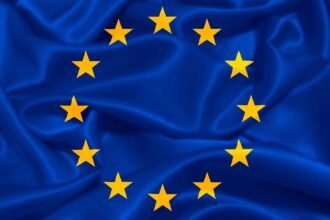The European Union (EU) is renowned for its commitment to research, innovation, and fostering collaboration across borders. As part of its strategy to attract global talent, the EU offers a Researcher Visa designed specifically for non-EU nationals who want to work on research projects in one or more of its member states. This visa streamlines the process for researchers, facilitating entry into the EU for short-term or long-term research activities, from scientific studies to academic projects.
This comprehensive guide will explain the steps involved in applying for the EU Researcher Visa, including eligibility requirements, document preparation, application procedures, and tips for a successful application.
What is the EU Researcher Visa?
The EU Researcher Visa is a residence permit specifically designed for non-EU nationals wishing to conduct research in EU member states. This visa type is part of the EU’s broader approach to attract top research talent from around the world. It is regulated under the EU Researchers Directive (Directive 2016/801), which allows non-EU researchers to enter and reside in the EU for the purpose of research. This permit grants researchers the flexibility to move within the EU for their projects and provides pathways for extended stays and family reunification.
Each EU country has adapted its policies under this directive, allowing researchers to access similar benefits across member states with some variations in application processes and requirements.
Benefits of the EU Researcher Visa
The EU Researcher Visa offers several benefits that make it an attractive option for non-EU researchers:
- Mobility within the EU: Researchers can conduct research in multiple EU countries without needing to reapply for a visa for each country.
- Extended Duration of Stay: The visa is often granted for the duration of the research project, which can range from a few months to several years.
- Pathway to Residence Permits: Researchers can apply for permanent residence if they meet certain criteria after their research period.
- Family Reunification: Researchers can bring their family members with them, who may also receive residence permits.
- Work Flexibility: Many EU countries allow researchers to work or teach in addition to conducting research, providing financial and career advantages.
These benefits allow researchers to fully immerse themselves in the EU’s research ecosystem, facilitating meaningful and impactful work.
Eligibility Requirements for the Researcher Visa
Eligibility criteria for the EU Researcher Visa vary by country but generally include:
- Research Contract: You must have a valid contract or hosting agreement with a recognized research institution, university, or company in the EU.
- Qualification: A minimum of a master’s degree or equivalent experience in the relevant field of research.
- Funding Proof: Demonstrate that you have sufficient funds to support yourself throughout your stay.
- Health Insurance: Valid health insurance coverage that meets the requirements of the hosting country.
- Clear Criminal Record: A police clearance certificate to prove you have no criminal record may be required by some member states.
- Intention to Return or Extend: In some cases, you may need to prove your intent to complete the research within the EU.
These requirements are essential for ensuring that the researcher is qualified and financially prepared to complete their project in the EU.
Researcher Visa Options by Country
While the EU has standardized requirements for the Researcher Visa, each country has its own specific application process, fees, and additional requirements. Below are a few examples:
- Germany: The German Researcher Visa allows stays for up to two years with an option for extension and requires a valid employment or hosting contract.
- France: The French “Passeport Talent – Chercheur” is specifically for researchers and is granted for the duration of the research project.
- Netherlands: The Dutch Researcher Visa is facilitated by the “Highly Skilled Migrant” pathway for researchers and is granted based on employer sponsorship.
- Sweden: Sweden offers a research permit that allows the researcher to work and move within the EU for up to two years.
It’s important to check with the respective country’s immigration office to ensure compliance with local visa requirements.
Key Documents Needed for the Application
Having the required documents is essential for a successful visa application. Below is a list of commonly required documents:
- Research Contract or Hosting Agreement: Proof of a valid contract with an EU-based research institution.
- Valid Passport: Ensure your passport is valid for the entire duration of your intended stay.
- Proof of Financial Support: Bank statements, research grants, or salary documentation proving you can support yourself.
- Health Insurance: Proof of health insurance that meets EU standards.
- Academic Qualifications: Degree certificates and proof of relevant experience.
- Police Clearance Certificate: A recent criminal background check from your home country.
- Completed Visa Application Form: Specific to the country where you’re applying.
- Proof of Accommodation: Some countries require evidence of accommodation arrangements.
Ensure that all documents are translated into the appropriate language if required by the hosting country.
Steps to Apply for the EU Researcher Visa
Follow these steps to apply for the EU Researcher Visa:
Step 1: Obtain a Research Contract
Secure a research position or contract with a recognized EU institution. This contract is necessary for your visa application.
Step 2: Check Country-Specific Requirements
Verify the specific visa requirements of the EU country where you’ll be conducting your research.
Step 3: Prepare and Gather Documents
Collect all required documents, ensuring they are valid and meet country-specific criteria.
Step 4: Complete the Visa Application
Fill out the application form for the respective country’s researcher visa. This form is often available online through the national immigration website.
Step 5: Pay the Application Fee
Each country has its own application fee for the Researcher Visa. Payment methods and amounts vary, so confirm this before submission.
Step 6: Schedule a Visa Appointment
Visit the consulate or embassy of the EU country where you’ll be conducting research to submit your application and undergo any required interviews.
Step 7: Submit Biometrics and Attend the Interview (if required)
You may be required to provide fingerprints and attend an interview with a visa officer.
Step 8: Wait for Processing
Once submitted, your application will undergo processing, which can take several weeks depending on the country.
After approval, you’ll receive a visa sticker in your passport, allowing you to enter the EU for research purposes.
Funding and Financial Requirements
One of the key requirements for the EU Researcher Visa is proof of sufficient funds to support your stay. Funding can come from:
- Research Grants: Funds awarded by academic or research institutions.
- Sponsorship: Some researchers are sponsored by their employers or other organizations.
- Personal Savings: Bank statements showing sufficient funds.
Each country may have a minimum monthly amount required to demonstrate adequate financial resources, so be sure to meet the necessary threshold.
Health Insurance Requirements
Health insurance is a mandatory component of the EU Researcher Visa. The insurance should cover:
- Comprehensive Health Care: General medical expenses and emergency care.
- Repatriation and Emergency Evacuation: Coverage in case of emergencies.
- Coverage for the Entire Stay: Insurance should be valid for the duration of your research contract.
Some countries have specific requirements, so check with the relevant embassy to ensure compliance.
Family Reunification with the Researcher Visa
Many EU countries offer family reunification options, allowing spouses, partners, and dependent children to join the researcher in the EU. Family members generally need to apply separately for a family residence permit, though the process is often simplified for those accompanying researchers.
- Dependent Benefits: In some countries, family members may have the right to work.
- Proof of Relationship: Marriage certificates, birth certificates, or other official documents may be required.
- Financial Proof: Demonstrating sufficient funds to support family members is typically required.
This option helps researchers maintain family unity while conducting research abroad.
Application Processing Times
Processing times vary widely depending on the EU country and your specific application. Typical processing times can range from 4-12 weeks, though it may take longer during peak seasons.
- Early Application: Apply as early as possible to avoid delays.
- Check Status: Some consulates provide online tools to track the status of your application.
It’s advisable to inquire about processing times with the embassy or consulate of the specific country.
Extending or Renewing the EU Researcher Visa
If your research project is extended, you can often apply to extend your Researcher Visa:
- Renewal Process: Apply for an extension through the local immigration office in your host country.
- Documentation: Provide an updated research contract and proof of continued funding.
- Deadlines: Submit the renewal application well before your current visa expires to avoid any interruptions.
Extensions are typically granted for legitimate reasons related to the research project.
Tips for a Successful Application
- Apply Early: Begin the application process several months in advance to ensure you have sufficient time to gather documents and address any issues that arise.
- Be Thorough with Documentation: Submit all required documents and double-check for completeness. Missing or incorrect documents can lead to delays or even rejection.
- Check Translation Requirements: Some EU countries require that all documents be translated into the local language or English. Ensure that any necessary translations are completed by certified translators.
- Demonstrate Financial Stability: Clearly show that you have enough funds to support yourself (and any dependents, if applicable) during your stay. This might include bank statements, proof of a scholarship, or a letter from a sponsor.
- Stay in Communication with the Host Institution: Your host institution or research supervisor can provide guidance and may assist with parts of the application process, especially if they are familiar with international researcher visas.
- Be Honest in Your Intentions: Clearly express your intention to conduct research in the EU and outline your plans for after the project. Transparency about your goals can strengthen your application.
- Prepare for Potential Interviews: Some countries may require an interview as part of the visa process. Prepare to discuss your research project, funding, and future plans in a clear and professional manner.
- Use Official Resources: For any doubts or questions, refer to the official immigration website or embassy of the EU country where you are applying. Many countries provide detailed guidelines for the researcher visa application process.
Conclusion
The EU Researcher Visa is a valuable opportunity for international researchers who want to collaborate, innovate, and contribute to academic and scientific advancements within the European Union. With the benefits of cross-border mobility, family reunification options, and an inclusive research environment, this visa program facilitates meaningful research experiences for non-EU nationals.
The application process, while straightforward, requires careful attention to detail, especially with document preparation, financial proof, and compliance with health insurance requirements. By understanding each step in the process—from obtaining a research contract to scheduling interviews and providing biometrics—researchers can navigate the visa application smoothly and begin their academic journey in the EU.
For researchers ready to embrace this opportunity, the EU Researcher Visa offers a pathway to rich academic experiences and potential future career opportunities within Europe’s vibrant research ecosystem. With preparation and a clear understanding of visa requirements, researchers can access all the resources and advantages that the European Union offers, making their research journey both fulfilling and impactful.



